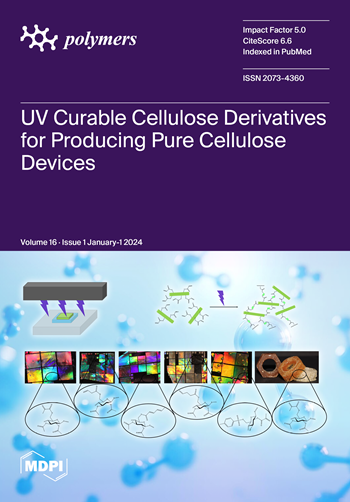考虑Giesekus模型中非恒定各向异性参数。
IF 4.9
3区 工程技术
Q1 POLYMER SCIENCE
引用次数: 0
摘要
Giesekus模型已被证明是最成功的本构流变模型之一。虽然Giesekus引入了各向异性参数作为常数,但最近的证据表明它不应该是常数。我们在此详细阐述了具有可变各向异性系数的含义;据我们所知,这只是第二个这样的模型。我们发现,修正导致了简单剪切流的第二法向应力系数的预测有重要的差异,其中最显著的是在启动简单剪切流的情况下,第二法向应力系数的线性粘弹性包络向更高的值移动,这更符合文献中的实验数据。本文章由计算机程序翻译,如有差异,请以英文原文为准。
Considering a Non-Constant Anisotropicity Parameter in the Giesekus Model.
The Giesekus model has proven to be one of the most successful constitutive rheological models. Although Giesekus introduced the anisotropicity parameter as a constant, recent evidence suggests that it should not be. We elaborate herein on the implications of having a variable anisotropicity coefficient; to our knowledge, this is only the second such model. We find that the modification leads to important differences in the predictions of the second normal stress coefficient in simple shear flow, of which the most significant is the shift of the linear viscoelastic envelope of the second normal stress coefficient to higher values in the case of start-up simple shear flow, which is more in line with experimental data in the literature.
求助全文
通过发布文献求助,成功后即可免费获取论文全文。
去求助
来源期刊

Polymers
POLYMER SCIENCE-
CiteScore
8.00
自引率
16.00%
发文量
4697
审稿时长
1.3 months
期刊介绍:
Polymers (ISSN 2073-4360) is an international, open access journal of polymer science. It publishes research papers, short communications and review papers. Our aim is to encourage scientists to publish their experimental and theoretical results in as much detail as possible. Therefore, there is no restriction on the length of the papers. The full experimental details must be provided so that the results can be reproduced. Polymers provides an interdisciplinary forum for publishing papers which advance the fields of (i) polymerization methods, (ii) theory, simulation, and modeling, (iii) understanding of new physical phenomena, (iv) advances in characterization techniques, and (v) harnessing of self-assembly and biological strategies for producing complex multifunctional structures.
 求助内容:
求助内容: 应助结果提醒方式:
应助结果提醒方式:


